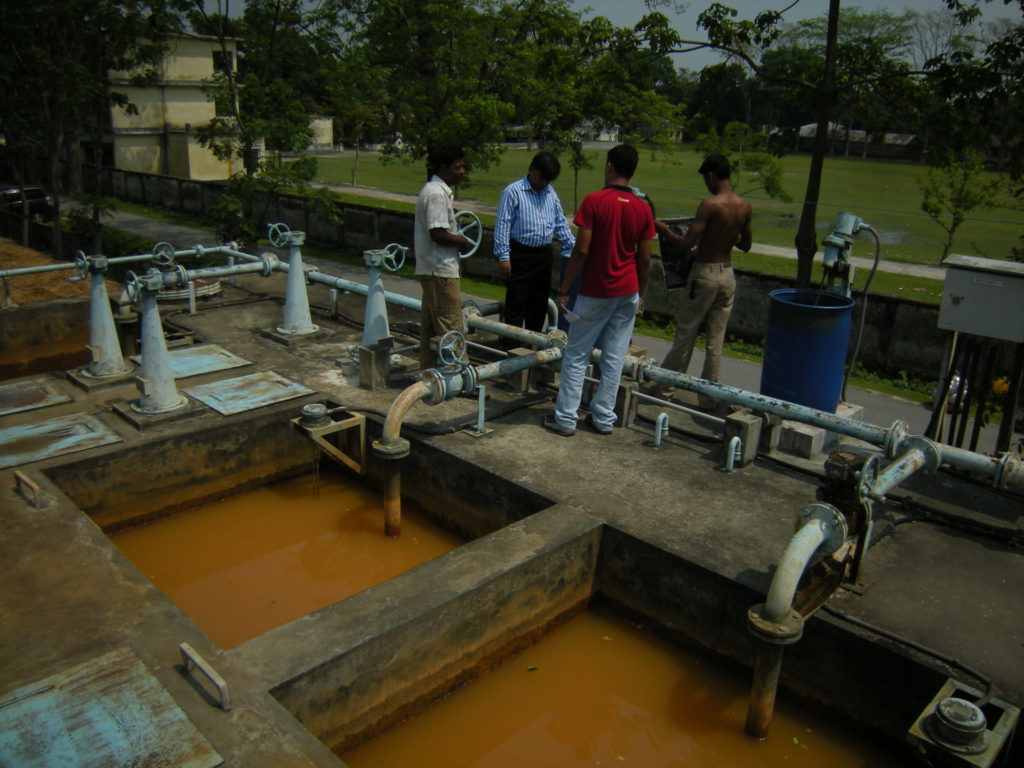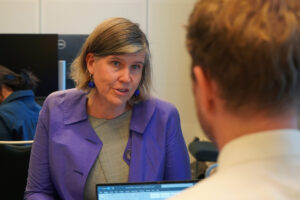- SIWI – Leading expert in water governance
- /
- Latest
- /
- A focus on accountability to improve WASH services
A focus on accountability to improve WASH services
By 2030, 80 per cent of the world’s poorest people will live in ‘fragile’ states, where access to water, sanitation and hygiene services (WASH) tends to be limited. A new report from SIWI and UNICEF looks at what can be done to improve the efficiency and accountability of WASH services in such contexts.

In 2030, the world is supposed to meet the goals of the 2030 Agenda, including Sustainable Development Goal 6 about access to water and sanitation for all. But the prospect of achieving this seems remote for the world’s poorest, 80 per cent of whom are expected to reside in ‘fragile’ states a decade from now[1]. Fragile states are characterized by low levels of trust and high levels of vulnerability among the population. These countries are also typically off track to meet the Sustainable Development Goals, including SDG6 about WASH services.
To improve the situation, it is important to make the country’s WASH sector more accountable, according to a new concept note from SIWI and UNICEF WASH Accountability in Fragile contexts. The document is part of the series Accountability for Sustainability[2] programme and offers an analysis of accountability actors and relations around WASH service provision in fragile contexts using the analytical frameworks of the Accountability Mapping Tools.[3] The note also offers concrete recommendations to help WASH practitioners improve accountability in the service delivery.
Fragility has a major negative impact on a country’s development. In countries that have experienced protracted conflicts, it can take 20-30 years to return to pre-conflict levels of service delivery. Poor water governance can also in itself be a cause and an aggravator of fragility.
To change the situation, it is therefore essential to strengthen accountability, which can be described as “the central and perhaps most powerful element of good governance”. Accountability for WASH service delivery refers to the principle whereby government officials and those that have a responsibility in water services account for their actions and answer to those they serve. This is fundamental in fragile contexts, characterized by limited trust across stakeholders, low real or perceived legitimacy, and high vulnerability of the population. Improving accountability is essential to bring back trust, state legitimacy, and improved and sustainable service delivery.
Fragile contexts are dynamic and require some adaptations of regular models of WASH service delivery compared to more stable contexts. This includes new actors and new accountability relations, in light of the diminished presence or functioning of the state and sector institutions.
The paper presents these conclusions as principles for action that can be translated into specific activities based on context-specific conditions:
- The first principle refers to understanding the existing accountability framework and the political nature of service delivery in fragile contexts.
- The second principle refers to the need to rebuild trust among the key national stakeholders (citizens, service providers, regulators and policy makers) while improving the quality of the services.
- The third principle refers to working proactively towards the re-establishment and strengthening of the national service delivery framework.
- The fourth principle refers to the need to invest more in preparedness, conflict prevention and building sector resilience, with a more long-term, risk-informed approach.
- The fifth principle relates to continued capacity development and systems strengthening.
The overall objective is to have in place a clear service delivery framework with strong accountability relationships among the stakeholders.
[1] OECD, 2018 – States of fragility 2018. Highlights. Paris.
[2] https://www.watergovernance.org/programmes/accountability-sustainability-new-version/accountability/
[3] UNDP/ SIWI Water Governance Facility and UNICEF 2016
Most recent

SIWI’s endorsement of the COP29 Declaration on Water for Climate Action
- Water and climate
- World Water Week
- Water governance

Women hold the key to building climate resilience
- Gender and water
- Resilience through water

Bridging Borders: A Conversation with Meike van Ginneken
- Transboundary Water Cooperation
- Water cooperation
- Water and Peace
- Water diplomacy

SIWI-WASH experts join IVL

Water for Climate in Baku

World Water Week and SIWI in 2025


